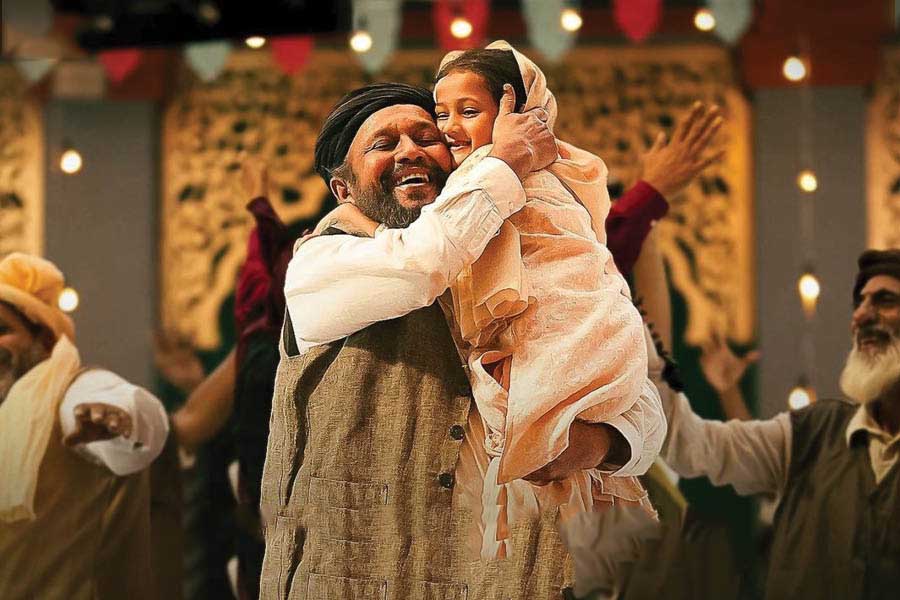Stepping into the shoes of Chhabi Biswas is no mean feat but Mithun Chakraborty takes up the challenge and passes with flying colours in Suman Ghosh’s latest film, Kabuliwala. Ghosh’s film is based on a short story by Rabindranath Tagore (written in 1899), which was turned into a film in 1957 by Tapan Sinha and became a landmark in Bengali cinema.
Ghosh has set his film in 1965, against the backdrop of the second Indo-Pakistan war and with a wave of disquiet gripping Kolkata. Muslim traders from Kabul are viewed with suspicion in the Bengali neighbourhoods and, in the midst of this, Rahmat Khan (Mithun Chakraborty), an Afghan man on the brink of bankruptcy, arrives penniless in Kolkata from Afghanistan to earn a living.
On one of his rounds selling dry fruits, Rahmat runs into Mini (Anumegha Kahali), a little girl who reminds him of his young daughter back home in Afghanistan. While Mini’s father Aurobindo (Abir Chatterjee) encourages the growing friendship between Rahmat and Mini, her conservative mother Sneha (Sohini Sarkar) is wary of Rahmat’s intentions.
The original short story serves as an inspiration for Ghosh to weave in elements of racial discrimination, bias, rumour mongering and vigilante mob justice, mirroring the current socio-political situation in the country. The characters in the film are often heavy-handed with Rahmat, calling him a Pakistani and threatening him with dire consequences if he didn’t return to his country.
When Mini goes missing one day, the needle of suspicion automatically points towards Rahmat. Sneha begins to believe Rahmat is a human trafficker because her domestic help had heard someone in the neighbourhood say so.
The film does more than harp on the theme of friendship between two people of different ages by making Rahmat-Mini’s relationship a metaphor for tolerance and acceptance. In a touching scene, Mini asks Rahmat what the name of his God is. When he says it’s Allah, she replies, “I call my God ‘thakur’”.
While comparisons to Chhabi Biswas’s portrayal of Rahmat in Tapan Sinha’s Kabuliwala are inevitable, Mithun makes the character his own. He makes Rahmat’s condition relatable, making you feel like anyone could be in his shoes. Mithun leaves a lasting impact as Rahmat reaches the poignant final scene and the end credits roll.
However, it is the exuberant Anumegha Kahali who steals the show as little Mini, lighting up the screen with her carefree innocence. Abir Chatterjee delivers a measured performance as Mini’s middle-class intellectual father. Sohini Sarkar is convincing as Mini’s worried mother, whose change of heart towards the end of the film might leave you teary-eyed.
The music by Indraadip Dasgupta, especially tracks like Kabul Manush (sung by Anirban Bhattacharya) and Bhaabo Jodi (sung by Arijit Singh), complement the narrative. Ghosh’s attention to detail in props, set design and period-appropriate costumes captures the essence of an old Kolkata.











